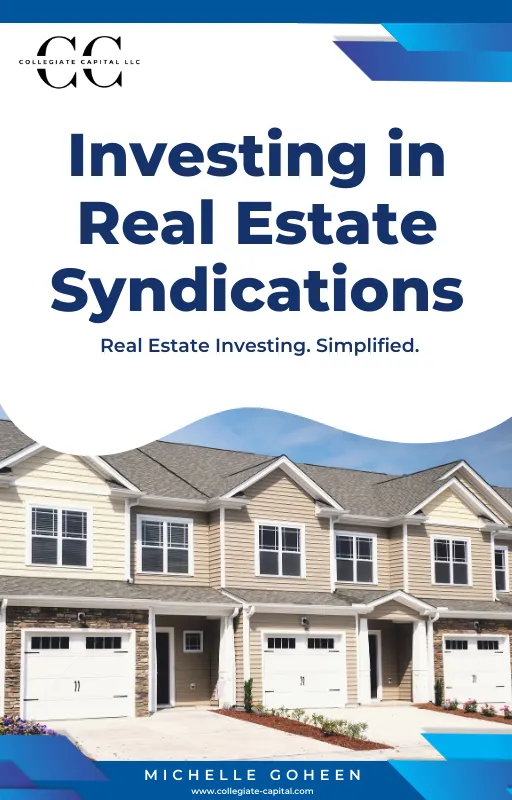Articles

Real Estate Limited Partnerships - Immediate and Future Tax Benefits
Immediate and Future Tax Benefits Explained
In my previous article, we explored the advantages of real estate syndications, such as limited liability, professional management, and substantial tax benefits. Thank you for your valuable feedback and the many questions about how everyday investors can leverage real estate syndications. The appeal of investing in real estate without the operational responsibilities clearly resonated with many of you.
Today, we'll dive deeper into the tax advantages, specifically addressing how limited partners ("LPs") can benefit from increased depreciation through cost segregation and bonus depreciation, including specific examples -- topics frequently requested in your feedback.
Let’s consider a scenario where a limited partner invests $100,000 in a real estate syndication, and a cost segregation study allows an additional $35,000 of extra depreciation with bonus depreciation in 2024. Assuming the LP is in the highest tax bracket and their K-1 (the tax document that reports a partner's share of income, deductions, and credits from a partnership or LLC) shows a loss of $35,000, we'll analyze how much they could save in taxes if they have passive income to offset and how they can roll the loss forward if they don’t have passive income in 2024.
Understanding Depreciation and Passive Income
Depreciation is a non-cash deduction that allows real estate investors to write off the cost of their investment property over time. With a cost segregation study, certain components of a property can be depreciated over shorter periods, accelerating the depreciation benefits.
Passive income is income generated from investments such as rental properties or other businesses in which the investor is not actively involved. Losses from passive activities can typically only offset other passive income, not active income (e.g., salary or wages) or portfolio income (e.g. interest or dividends,)
Scenario Analysis - #1 - With Passive Income to Offset
Investment: $100,000
Additional Depreciation via Cost Segregation: $35,000
K-1 Loss: $35,000
Tax Bracket: 37% (highest tax bracket)
If the LP has a $35,000 loss from the K-1 after interest and depreciation deductions, an investor can offset their other passive income dollar-for-dollar. Here’s the tax saving calculation:
Tax Savings = K-1 Loss × Tax Rate
Tax Savings = $35,000 × $37% = $12,950
Thus, the LP would save $12,950 in taxes for 2024.
Scenario Analysis - #2 - Without Passive Income to Offset
If the LP does not have passive income in 2024, the $35,000 loss cannot offset active income. Instead, the loss is carried forward to future years until it can offset passive income or gain from the sale of the property.
Carryforward Mechanism: The $35,000 loss is stored and can be used to offset future passive income or gain from the sale of the investment.
For example, if in 2025 the LP has $40,000 of passive income or a gain, the carried forward loss can offset this:
Remaining Loss After Offset = $35,000 (carried forward) - $35,000 (offset)
Ebooks

In this eBook, you'll find:
What real estate syndications are and how they work: Learn how this structure allows passive investors to earn returns without taking on day-to-day responsibilities.
How to vet a sponsor, structure, and deal: This section walks you through what to look for in a sponsor's track record, how the deal is structured, and how to assess whether the projected returns align with your goals and risk tolerance.
Common terms explained (GP, LP, preferred return, equity split): The world of syndications can feel full of confusing lingo. We break down every key term in plain English so you can confidently review investment summaries without second-guessing what anything means.
Real-life walkthrough of a syndication deal: From the numbers and percentages that are presented in the investor pitch deck, to funding, to monthly distributions, and final sale. See exactly how your money flows and grows throughout the deal’s lifecycle.
The full lifecycle—from investing to exit: Understand what happens after you wire your funds: from legal documentation and regular updates to how and when you get paid. You’ll also learn how long these investments typically last and what the exit strategies may look like.

In this eBook, you'll find:
Surviving the Hunger Games of Oxford: Insider tips to navigate the competitive rental market and secure the best housing options for your student.
Neighborhood Insights: Detailed overviews of Oxford's key areas to help you choose the perfect location that aligns with your student's lifestyle and needs.
Budgeting Advice: Practical financial guidance to plan effectively for housing expenses, ensuring a balance between comfort and affordability.
Lease Know-How: Understanding the intricacies of "by the room" leases, including the differences between individual and joint leases, and learning the essential questions to ask landlords to make informed decisions.
Roommate Compatibility Tools: Assessments and discussion guides to help your student find the ideal roommate, along with templates for creating comprehensive roommate agreements to cultivate a peaceful shared living environment.
This guide equips you with the knowledge and tools to confidently navigate the off-campus housing journey for your Ole Miss student.
Others

As Seen On
AS SEEN ON M1 MARCIN DROZDZ MEMBER HIGHLIGHT
Watch the video how Michelle Closed a $3M Deal in America’s Best College Town
From closing 29 companies in two years in corporate finance to taking her skills into the booming world of student housing.
Subscribe
ACCESS THE DATA ROOM NOW!
Collegiate Capital, LLC
Copyright © 2024 Collegiate Capital LLC - All Rights Reserved.
Collegiate Capital does not offer or solicit the sale of securities or other investments through this website or any other communication. All investment opportunities offered by Collegiate Capital are made solely through a private placement memorandum, which is provided only to accredited investors in compliance with applicable securities laws and regulations. Investments involve risk, and past performance is not indicative of future results. Prospective investors are urged to review all offering materials carefully and consult with their financial, tax, and legal advisors before making any investment decision.


Facebook
LinkedIn